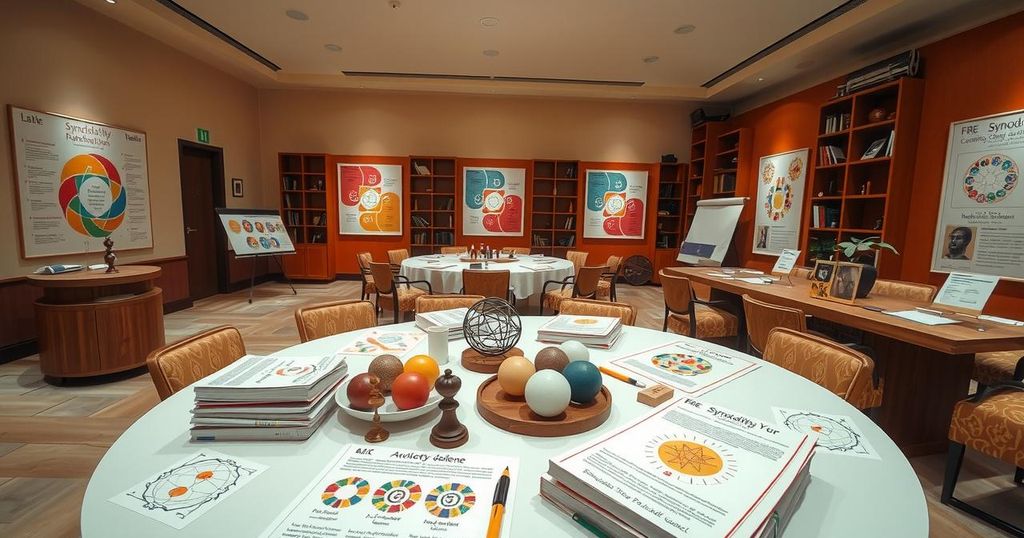Rwanda’s Catholic Bishops participated in a five-day training program aimed at fostering “true missionaries of synodality.” The initiative engaged 50 delegates in discussions on enhancing the synodal approach within the Church. Key highlights include Bishop Sinayobye’s emphasis on communion, Fr. Costa’s reflections on the local teams’ involvement, and Cardinal Grech’s insights on the importance of ongoing synodal processes.
On March 2-6, 2025, Catholic Bishops in Rwanda participated in a five-day training program organized by the country’s “school of Synodality.” This initiative aimed to develop “true missionaries of synodality” within Christian communities. A total of 50 delegates, including members of the Episcopal Conference of Rwanda, clergy, religious, and laypersons, engaged in discussions on enhancing the synodal mission in Rwanda, guided by the Synodal path’s orientations.
Bishop Edouard Sinayobye of Cyangugu Catholic Diocese emphasized the assembly’s goal, stating that they convened to foster a manner of ecclesial life centered on synodality. He alluded to the insights from the 52-page Final Document of the XVI Ordinary General Assembly of the Synod of Bishops and how participants aimed to deepen their understanding of the synod process while practicing the style of listening and discernment through Lectio Divina.
According to Bishop Sinayobye, the synod journey has been seen as a divine moment, fostering grace and renewal within the Rwandan Church, which seeks communion, unity, and care for all. Fr. Giacomo Costa, a Consultor for the General Secretariat of the Synod who facilitated the sessions, reflected on the initiative’s success, noting the necessity of building upon the insights gained thus far in the synodal process.
Fr. Costa appreciated the substantial involvement of Rwandan diocesan synod teams in the listening phase, highlighting their commitment to inclusivity. He reiterated the importance of fostering a culture of listening and engagement, stressing that the synodal implementation process must not merely convey a document’s contents but rather promote a profound experience of communal journeying and transformation.
Recognizing the efforts of the local teams, Fr. Costa acknowledged the shared responsibility among all baptized individuals in carrying out the Church’s mission. Additionally, Mario Cardinal Grech, Secretary General of the Synod of Bishops, noted that the Synod on Synodality remains ongoing, with the Final Document serving as a guide for the implementation phase.
Cardinal Grech asserted that meaningful reform and documentation must resonate deeply with the journey of diverse local Churches, thus aligning with their unique histories and cultural contexts. He concluded by stating that the path of reception should inherently involve a process of enculturation, particularly engaging the experiences of African Churches.
In summary, the five-day training for Catholic Bishops in Rwanda aimed at developing true missionaries of synodality represents a pivotal step in fostering a collective ecclesial journey. The insights from the synodal process, the emphasis on inclusivity, and the importance of listening underscore the need for a profound engagement in the Church’s mission. As articulated by leaders such as Bishop Sinayobye and Cardinal Grech, the ongoing synodal efforts highlight the significance of enculturation and communion in the diverse contexts of local Churches.
Original Source: www.aciafrica.org




